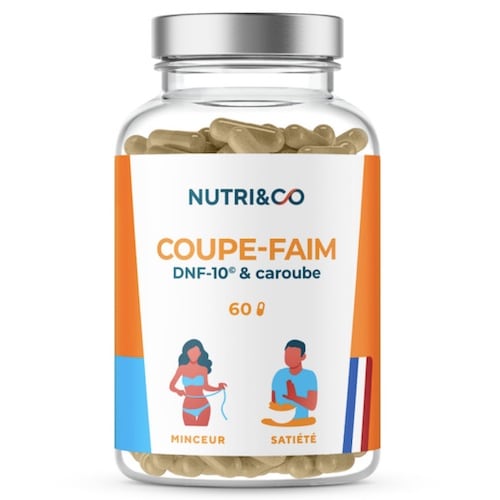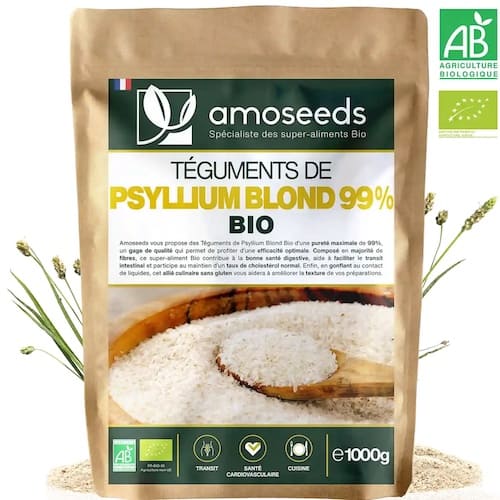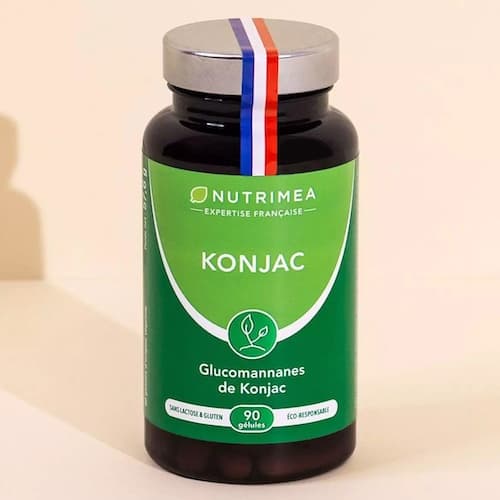sponsored
# Best hunger suppressant shake 🥇
Weight Loss Shake (PhenQ)
- Helps to lose excess weight
- Increases muscle strength
- 13 essential vitamins
- 100% natural ingredients
- 60-day money-back guarantee
We analyzed 16 dietary supplements sold online based on 6 criteria and have selected these 3 appetite suppressants:
Best appetite suppressant complex 🥇
> Appetite Suppressant – Nutri&Co
Best natural appetite suppressant
> 99% Organic Blond Psyllium – Amoseeds
Best konjac
> Konjac – Nutrimea
Best Appetite Suppressant Supplements
Our Selection Criteria
- Actives: choice and quality of actives contained in the dietary supplement.
- Bioavailability: the form of the ingredients influences their absorption.
- Concentration of Actives: a correct concentration of actives increases the product’s effectiveness.
- Presence of Additives: flavors, preservatives, and coating excipients.
- Price / day: this is the price per day of treatment at the daily dose recommended by the brand.
- Customer Reviews: these customer reviews on the product are collected from the brand’s website, marketplaces, or review sites.
Best Appetite Suppressant Complex 🥇
Brand: Nutri&Co
Actives: DNF-10®, Carob
Bioavailability: high
Concentration: medium
Additives: HPMC (vegetable capsule)
Price / day: €0.66
Customer Reviews: 4.6/5 (ng-nutrition.fr)
The Nutri&Co appetite suppressant supplement is particularly effective because it contains DNF-10®, an innovative active obtained by hydrolyzing Saccharomyces cerevisiae protein.
This is one of the rare actives whose effectiveness has been subject to in vivo studies (on humans). 2 clinical studies totaling 84 subjects showed a reduction of 600 kcal per day in food intake after 8 weeks of treatment.
The two studies also showed a reduction in body fat of 2 kg.
This supplement also contains carob, a plant recognized for its effect on satiety.
It is available online and in certain pharmacies.
We really like the Nutri&Co brand because it is reliable and transparent (read our full test here for more info). Furthermore, customer reviews are very positive.
This brand is based in Aix en Provence and places particular importance on the quality of the actives in its products.
Best Natural Appetite Suppressant
Brand: Amoseeds
Actives: blond psyllium
Bioavailability: high
Concentration of Actives: correct (100% blond psyllium husks)
Presence of Additives: none
Price / day: €0.41
Customer Reviews: 4.7/5 (trustpilot.com)
The blond psyllium from Amoseeds comes from India. It is of high quality: batches are filtered and sieved to ensure a maximum purity of 99% and a fiber concentration of 88%.
Organic, it contains no ethylene oxide, a harmful pesticide used for sterilization, unfortunately found in some brands.
Amoseeds is a French brand specializing in superfoods and plant-based supplements.
The products are offered in their raw form or as capsules and powders. They are organic, guaranteed without additives and preservatives.
Best Konjac
Brand: Nutrimea
Actives: Konjac glucomannans (Amorphophallus konjac)
Bioavailability: high (rhizome extract, rich in glucomannans)
Concentration: adequate (glucomannan titration: 90%)
Additives: rice extract (natural anti-caking agent)
Price/day: €0.6
Customer reviews: 4.7/5 (avis-verifies.com)
Nutrimea’s konjac supplement is concentrated at 90% in glucomannan fibers. These fibers have the ability to swell in the stomach in the presence of water, inducing an immediate appetite suppressant effect.
The high glucomannan content allows you to fully benefit from the effectiveness of konjac.
Nutrimea is a brand that develops good quality dietary supplements at controlled prices. All supplements are made in France, gluten-free, lactose-free, and 100% natural. Some are certified organic.
How are our hunger and appetite regulated?
Signals from our body
Hunger is a message from the body expressed as a hollow feeling in the stomach.
It combines with appetite. Unlike hunger, which is a physiological need, appetite corresponds to the desire to eat and the pleasure found in it.
Satiety, finally, represents the feeling of non-hunger; it is a signal from the body indicating that we have eaten enough. It is regulated by different hormones, notably leptin, an “anorexigenic” hormone.
Disruptive factors
Factors can disturb the signals: following a particular diet, periods of pregnancy or menstruation, certain pathologies, or taking medication.
The perception of hunger is then replaced by a desire to eat, linked to a need for reward, pleasure, satisfaction. The feeling of satiety is no longer properly controlled, and snacking becomes more frequent.
Should you take appetite suppressant dietary supplements?
Try eating differently first
Before considering appetite suppressant supplements, I advise you to question the origin of excessive appetite and the specific solutions to adopt.
Some issues require nutritionist monitoring, particularly in the case of a pathology. It can be normal to have more appetite, for example during pregnancy, with the hormonal variation that occurs.
To better feel food sensations, I invite you to eat slowly, in calm, and to chew each food sufficiently.
Chewing, in addition to allowing for better quality digestion, increases the feeling of satiety and naturally adjusts food intake, thanks to the secretion of leptin.
Avoid any other associated activity (no television or phone), and ban restrictive diets, opting for a balanced and diverse diet.
Choose quality appetite suppressant supplements
In addition, certain actives have a natural appetite suppressant effect, and are found in concentrated doses in dietary supplements.
Beware, some products may contain ingredients with undesirable effects, sometimes severe.
I strongly recommend choosing a quality product, conducting short cures, and seeking advice from a healthcare professional if in doubt.
What are the most effective actives?
Konjac
Konjac is a plant root. Rich in fibers and low in calories, it is a food known for its appetite suppressant effect.
The main fiber contained in konjac is called glucomannan. It is a soluble fiber that can absorb up to 100 times its volume in water.
Thus, these fibers clump together in the intestine and form a gel, which slows the absorption of nutrients. This stimulates the feeling of satiety and limits snacking.
This richness in fibers also makes it a good ally for a sluggish transit.
The effectiveness of konjac on weight loss is highlighted in this study: 83 overweight adults either consumed a konjac-based supplement, dosed at 3 g of glucomannan fibers, or took a placebo.
After 2 months, those taking konjac observed a significant reduction in weight, body fat, and LDL cholesterol, the “bad” cholesterol.
Carob
Carob, or more precisely the fruit of the carob tree, contains many minerals, pectin (a gelling agent), proteins, and dietary fibers. Its seeds are particularly nutrient-dense.
This fruit has anti-hyperlipidemic and anti-diabetic effects, due to its high content of antioxidants and fibers.
A double-blind clinical study, that is, compared to a placebo, over 6 weeks and on 58 volunteers, concluded a reduction in LDL cholesterol in the carob fiber group compared to the placebo, and a reduction in triglycerides in women.
A randomized trial, meaning compared to another treatment, observed a reduction in blood sugar levels after consuming carob-based snacks before a meal, with a better feeling of satiety.
These beneficial effects of carob are promising. However, in my opinion, larger-scale studies are necessary to evaluate its effects on body weight and metabolism.
Psyllium
Psyllium is a plant with an action mode equivalent to that of carob. Its seeds are rich in soluble fibers: they form a viscous gel in the stomach when in contact with water, mechanically increasing the feeling of fullness.
This clinical trial indicates that psyllium supplementation contributes to greater satiety and reduces appetite between meals, compared to a placebo.
Besides its appetite-suppressing effect, psyllium would have a positive effect on metabolic syndrome. This is a disease characterized by abdominal obesity, and irregular blood sugar and lipid levels. This is indicated in this study review published in 2018.
Fucus
Fucus is a brown algae, rich in minerals, vitamins, and iodine.
This algae consists of non-assimilable mucilage, also called alginates: they quickly swell in the stomach and have the ability to prolong gastric emptying, improve satiety, and induce a reduction in food intake.
The fiber richness of fucus also promotes gastrointestinal health and the growth of beneficial microbiota.
In a 2011 study, conducted double-blind (neither the doctor nor the patients know who has received the placebo or the active principle), it was reported that the consumption of alginate-based drinks significantly increased the feeling of satiety, reduced hunger, but had no direct effects on weight loss.
Adverse effects are rare, but fucus can disrupt proper thyroid function. Therefore, I do not recommend its use in cases of thyroid disorders.
Green Tea
Green tea leaves contain catechins, molecules rich in caffeine. The molecules mainly present in green tea are called EGCG (epigallocatechin gallate), and have strong antioxidant properties.
These EGCGs are believed to increase thermogenesis and thus calorie expenditure, as indicated by this study. EGCG might also exert anti-obesity effects by limiting the absorption and transport of lipids.
Caffeine
Caffeine is a bitter substance naturally found in many plants, including: tea leaves, cola nuts, cocoa beans.
It is especially known and consumed for its positive effects on alertness and concentration, but is frequently found among the ingredients of weight-loss supplements.
Indeed, it has a diuretic effect (it helps the body eliminate excess salt and water via urine) and it stimulates the metabolism.
A review of the literature revealed that caffeine, consumed half an hour to four hours before a meal, could influence appetite hormones and feelings of satiety.
However, current data on the appetite-suppressant effect of caffeine remains contradictory, with other studies concluding an increase in appetite following caffeine consumption!
These properties are also the cause of its side effects, particularly in cases of excessive consumption: tremors, insomnia, palpitations.

In what form?
In capsules
The capsule form is the most commonly found form. Convenient to use, it allows for an appropriate concentration of active ingredients, and limits the number of daily doses (when the product is of quality).
Konjac, fucus, green tea are generally packaged in capsules.
In powder and seeds
Minimally processed, quality powders or seeds allow for a good standardization of active ingredients.
This form is suitable for people who have difficulty swallowing capsules, or who have swallowing problems.
Powders mix easily with a drink, water, or fruit juice. But you can also add them to yogurt or a protein shake.
Notably, psyllium and carob are found in this form.
In gummies
Gummies, or chewable gummies, are a popular form because they resemble candies and are often flavored to improve taste.
This is a form I rarely recommend because gummies often contain numerous additives, sugar or sweeteners, which should be avoided when purchasing weight loss and appetite suppressant supplements.
In herbal teas and infusions
You will find fucus, mate, and more generally green tea to consume in an infusion.
Some formulas offer a blend of appetite-suppressing and diuretic and draining plants (hibiscus, ginger, lemon…).
The natural appetite-suppressing effect of water adds to the effect of the plants: water takes up space in the stomach, causing a feeling of fullness.
Criteria to consider
1. The formulation
A sufficiently studied ingredient can be enough to exert an appetite-suppressing effect. This is the case of konjac, for example.
To be effective, I invite you to check the real content of active ingredients, and favor a quality product.
The combination of several ingredients can allow for synergistic actions, depending on the product classes. You can find:
- Diuretic actives like pellitory-of-the-wall, dandelion, field horsetail
- Actives blocking fat absorption like psyllium seeds and certain seaweeds
- Actives inducing a feeling of satiety like pectin, seaweeds, fucus
However, I advise you to be cautious during your purchase: the more active ingredients there are, the more the concentration of each tends to decrease. This impacts the final effectiveness of the dietary supplement.
If the product formula contains several actives, limit yourself to 3 to 5 ingredients.
2. Concentration in active ingredients
The concentration of each ingredient, and its active compounds, is important to ensure the effectiveness of a dietary supplement.
For example, I recommend choosing a konjac-based product containing at least 80% glucomannans to exert a significant appetite-suppressing effect, with a daily intake of 3 grams spread throughout the day.
Additionally, a well-dosed formula avoids multiple intakes, thus improving compliance over time.
3. The mode of production
The way an ingredient is manufactured and packaged influences its final quality. Avoid intensive farming, favor French laboratories and local or organic farming (French or at least European).
Organic certification maximizes the absence of pesticides, and ensures the control of raw materials.
4. The quality of the active ingredients
Choosing a good quality dietary supplement is essential to optimize its action potential, and avoid the occurrence of adverse effects.
For example, fucus, widely used in slimming products, can be contaminated by heavy metals, especially if the product is of poor quality. It may then lead to potentially severe kidney insufficiencies over time. I do not recommend its use over the long term.
I invite you to check the origin of the ingredients, but also the presence or absence of dubious additives.
In addition to potentially being harmful to your health in the long term, they can also cause side effects, notably digestive (this is the case with certain texturizing agents like polysorbates).
Generally, the longer the list of additives, the lower the quality of the product.
5. The price
For “appetite-suppressant” complexes combining several ingredients, or a single sufficiently concentrated active like konjac or green tea, expect to pay between 15 and 25 euros for one month of treatment.
Powder or bulk forms generally offer better value for money.
For psyllium for example, a month of treatment costs approximately 10 to 15 euros. For powdered green tea, the price varies greatly, ranging from 10 to 30 euros per month depending on the brand.
Usage Precautions
Dietary supplements indicated to suppress hunger can contain a mixture of active ingredients. Each of them has its own usage precautions and contraindications.
I strongly recommend medical advice for individuals suffering from chronic disease or when associated with medication. I advise against appetite suppressants for pregnant or nursing women, and some are contraindicated.
To summarize
To ensure you choose a quality appetite suppressant supplement, check:
- 1. The product’s formulation: either a single concentrated ingredient or a maximum of 3 to 5 active ingredients per product
- 2. The concentration of active ingredients: a well-dosed formula with a sufficient level of active molecules
- 3. The production method: opt for non-intensive, local farming, preferably French and/or certified organic
- 4. The quality of the active ingredients: ensure the absence of controversial additives
- 5. The price: between 15 and 25 euros per month for complexes and between 10 and 15 euros for powder and bulk forms







